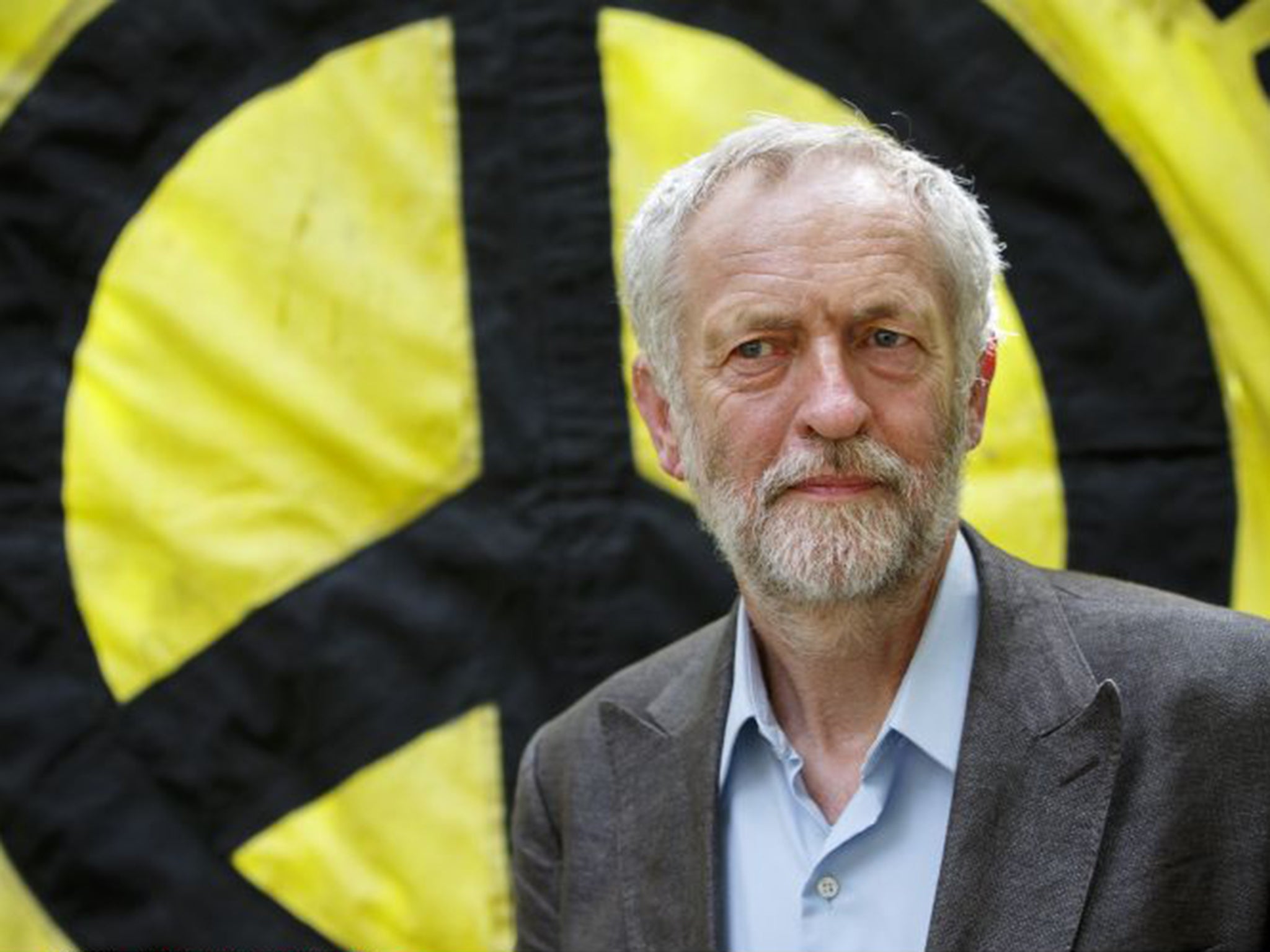Jeremy Corbyn considers adopting Nato spending guarantee in rethink of defence policy
Exclusive: Committing to 2 per cent enable the Labour Leader to pursue scrapping the Trident nuclear deterrent

Jeremy Corbyn, the Labour leader, is considering adopting the Nato commitment of spending 2 per cent of national income on defence, even though he has previously opposed the target.
It is understood that some of the small group of MPs who back Mr Corbyn, who has suffered a difficult first few weeks in charge, believe making the commitment would head off accusations that he is weak on defence. Making the commitment has been suggested as part of Mr Corbyn’s broader review of party policies.
Committing to 2 per cent would also provide him with cover to pursue one of his most important personal causes, scrapping the Trident nuclear deterrent, an issue he has campaigned on for nearly 50 years.
Mr Corbyn had hoped to push this principle through last month’s Labour conference, but the issue was not debated and replacing the four ageing submarines that carry Trident missiles remains party policy. Scrapping Trident would put Mr Corbyn at odds with Maria Eagle, his shadow defence secretary, who made clear her position on nuclear weapons when she was appointed last month.
Not replacing the submarines could free up as much as £100bn over 25 years to be spent on other areas of defence, such as peace keeping missions, humanitarian assistance and better equipped troops. The Conservatives are committed to replacing Trident, but Chancellor George Osborne only agreed to meet the 2 per cent spending target until 2020 after coming under pressure from his party’s right wing.
I am confident that we can make a just transition to a nuclear-weapons free Britain
A member of the shadow Cabinet said: “The 2 per cent commitment is a serious option – it’s not nailed down, but it is serious. It is also not necessarily the unanimous view of the military to spend all that money on Trident.”
A source close to Mr Corbyn added: “This has had a favourable reception among those around Jeremy. People think something along these lines is a good idea.”
Paul Rogers, a professor of peace studies at Bradford University who has spoken at Scrap Trident protests, said: “The real issue here is whether Corbyn is opening this up and gives us a real debate. It’s at least a possibility that wider issues will be considered. These include asking: what are Britain’s defence policies for?”
For example, rather than buying and developing conventional weapons, Mr Corbyn could look at spending the money on adapting the navy’s ships so that they can carry enough water to help whole towns scarred by war, disease or famine in the Middle East or Africa.
Last month, Mr Corbyn said he could not think of any circumstances that would lead him to deploy troops in conflicts overseas, prompting former Labour defence secretary Lord [John] Hutton to brand him “completely irresponsible”.
In his leadership defence manifesto, Mr Corbyn wrote: “I am confident that we can make a just transition to a nuclear-weapons free Britain …. In opposition, Labour should be working with communities, employees, their unions, industry and academic expertise to prepare a programme ready for implementation from May 2020 that protects skills and jobs in the defence sector, while ensuring a just transition to a post-nuclear weapons age.”
At the final hustings before seizing the Labour crown, Mr Corbyn said: “Can we afford to have global reach as a country of 65 million people on the north-west coast of Europe? Should we not be more interested in supporting international law and working with the UN rather than deciding that we as a small country can actually afford this global intervention role?”
In his address to the Conservative Party’s conference this month, David Cameron said Labour had “abandoned any notion” of having a strong defence.
Mr Cameron referred to remarks made by Mr Corbyn in 2011, when he said it was a “tragedy” that Bin Laden was shot dead by US Navy Seals rather than put on trial. Mr Corbyn’s team insisted that he was “a total opponent” of Bin Laden.
A spokesman for Mr Corbyn said: “Defence is part of the policy review. Policies will be reviewed alongside a review of [how] policymaking [is formulated
Subscribe to Independent Premium to bookmark this article
Want to bookmark your favourite articles and stories to read or reference later? Start your Independent Premium subscription today.

Join our commenting forum
Join thought-provoking conversations, follow other Independent readers and see their replies